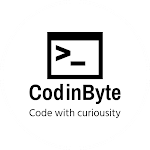A career as a blockchain developer will undoubtedly be one of the most exciting and lucrative in years to come, with blockchain technology already beginning to show its potential in reshaping the way we live our lives from day today. But what kind of person makes a good blockchain developer? And how exactly does one become one? These are the questions you’ll need to ask yourself before getting started on your own journey towards becoming a blockchain developer. For help on finding answers, keep reading this article all about how to become a blockchain developer, and how blockchain technology works!
Introduction
So you want to be a blockchain developer? In 2018, there were more than 28,000 cryptocurrency projects that raised over $9 billion. In 2019 it’s expected that those numbers will only continue to rise! With all these opportunities for developers and entrepreneurs in their infancy, you may be wondering: where do I start? Luckily for you, we’ve prepared an easy-to-follow guide on how to become a blockchain developer from scratch. We'll take you through each step of our process (so no experience is required) as well as some advice for getting your first blockchain job. Let's get started!
Blockchain - A Revolutionary Technology
Blockchain is one of today’s most revolutionary technologies. But what exactly is it and how does it work? If you have ever been confused by technical terms like Bitcoin, Ethereum, smart contracts or mining, then blockchain technology might be confusing for you as well. This guide will explain everything you need to know about blockchain technology. What is blockchain? How does blockchain work? Is bitcoin real money? We hope that by reading our guide you will learn what makes blockchain so valuable and how it can transform different industries around us. Here we go!
Blockchain Workforce Growth
How Are Things Going? Blockchain technology has gained prominence in recent years, with industry leaders including Barclays and IBM investing heavily in blockchain projects. With that in mind, who’s getting involved? How many people are needed to develop, secure and maintain blockchain systems? What skills are these individuals required to have? Where do they fit into an organization’s operations and which skillsets does it take to become a developer on a blockchain project? To answer those questions we spoke with professionals from IBM, Cognizant and ConsenSys about their companies' approaches to hiring blockchain developers.
12 Best Industries For Blockchain Developers in 2019
Which is Right for You? Blockchain technology is all around us, yet most people don’t realize it. From securing our digital currencies and information to building decentralized applications (dApps), blockchain is transforming many industries that we interact with on a daily basis. Every day, more corporations are seeing value in moving their businesses onto blockchain-based systems and applications because it offers an immutable way to track transactions and data. On top of that, dApps bring an added layer of transparency. By using blockchain technologies to create dApps, companies can solve issues related to fraud, security breaches, and more by offering services in which you hold keys for your data — not just single entities. So what does all of that mean for you?
Blockchain Development Guide For Beginners
A Comprehensive Step-By-Step Guide To Help You Get A Complete Understanding Of How Blockchain Works And How You Can Start Building Your Own Applications In Minutes. This Course Covers All Of The Necessary Fundamentals So That Even If You Are A Beginner, By The End Of It, You Will Be Able To Create Your Own Smart Contracts With Solidity.
The Future Of Blockchain Development
As one of the most trending technology blockchains is creating new ways for people to save, transact, and secure information. The world will never be the same after blockchain innovation. As companies adopt blockchains, it’s becoming increasingly likely that developers will need to learn how to write code on top of them. It isn’t just about cryptocurrency anymore—blockchain as a tool for building decentralized applications is an emerging trend in 2018 and beyond. In fact, Gartner predicts that by 2021 half of large enterprises will have begun development projects focused on blockchain-based business models—more than $10 billion worth of investment is predicted before then too.
Non Fungible Tokens
NFTs are special digital tokens on the blockchain that cannot be substituted for each other. An NFT can’t even be substituted for another instance of itself (e.g., one cat digital token is not equal to another). NFTs are essentially unique in their design, which makes them perfect for games and collectibles. When you own an NFT, it means you have control over that specific token as well as all transactions associated with it. Unlike fungible tokens, there’s no worry about someone double-spending or otherwise altering its transaction history because doing so would create a different token altogether! With non-fungible ERC721 tokens, what matters is ownership rather than identity.
Conclusion
What is blockchain? Simply put, a blockchain is an unchangeable list of records. Most commonly known as just the blockchain, it’s been around for decades. Blockchains contain information on transactions and links to a previous block (hence chain). This ledger (blockchain) exists in multiple copies throughout the world. When new transactions are created and added to a blockchain, new blocks are generated with unique timestamps within minutes to prevent double-spending. These blocks also link to each other cryptographically through hashes making them indestructible & tamper-proof.

